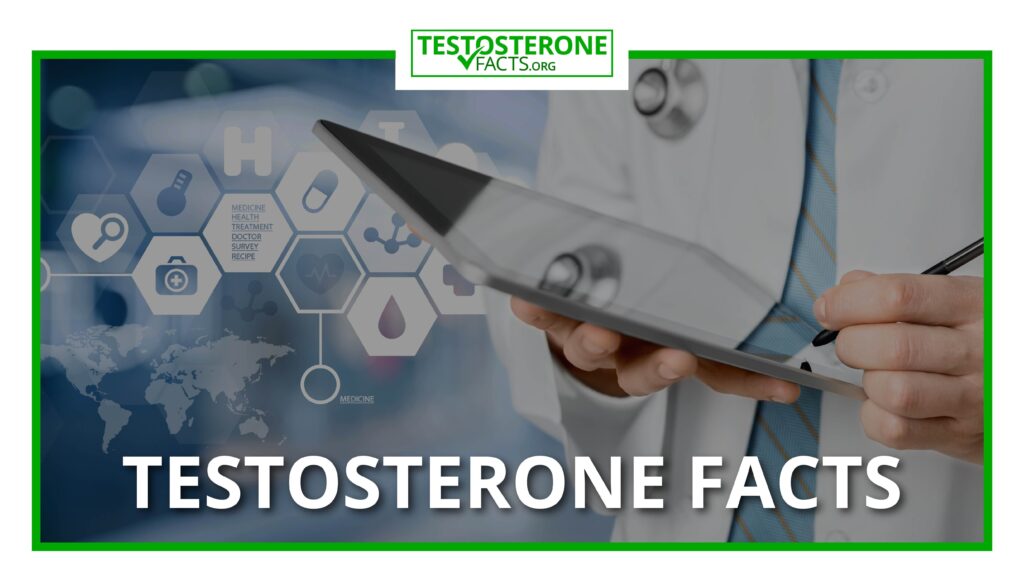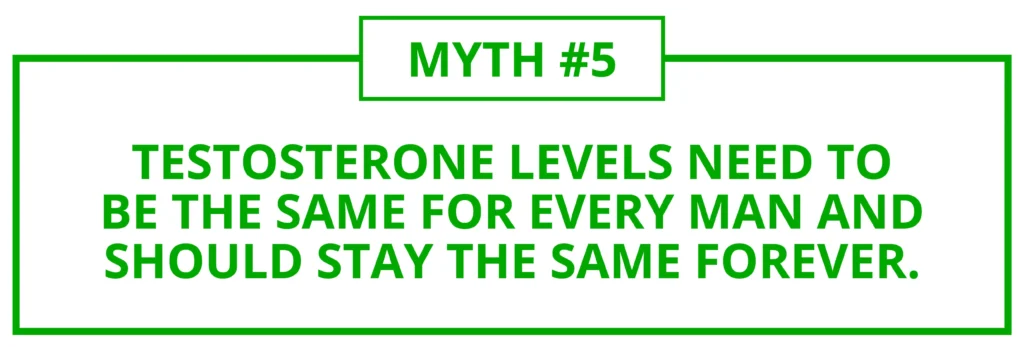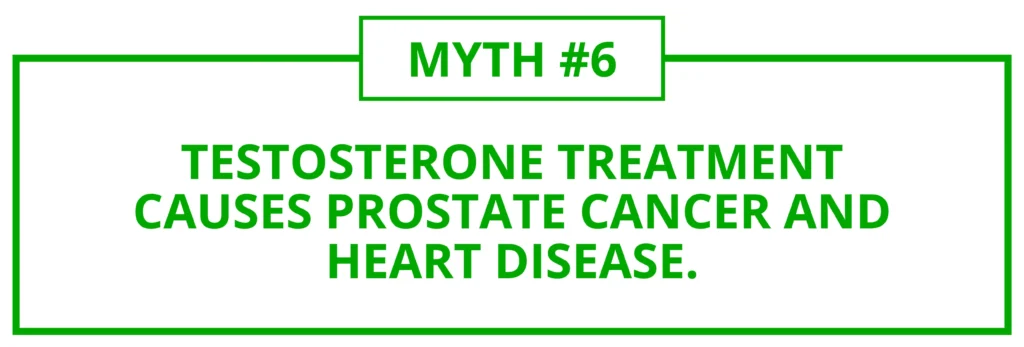
Testosterone Myths and Facts – Everything You Need to Know
- TFacts Staff

Testosterone is an important hormone responsible for a variety of physical, emotional, and behavioral characteristics in both men and women.
It is often associated with strength, aggression, and libido.
Furthermore, it plays a vital role in many body functions, including regulating mood, increasing energy levels, and promoting healthy bones and muscle strength.
If you have any of the following problems, there are chances that you may have low testosterone:
- Inefficient Sex Drive
- Less Frequent Sexual Activities
- Weak and Fewer Erections
- Less Energy
- Depressed and Stressed Mood
- Less Bone Strength
- Low Iron
- Excessive Body Fat
- Less Muscle Mass and Strength
Remember that it is easier to measure your testosterone levels with a blood test, so before you even begin thinking about the potential solutions, it is important to gain insights about yourself and your health history.
Unfortunately, there are many myths and misconceptions surrounding testosterone because of its reputation as a “male sex hormone.”
In reality, testosterone plays an important role in men’s health, and it is important to distinguish between the myths and the facts.

Table of Contents
ToggleMyth #1: Testosterone is a male sex hormone.
Testosterone plays an important role in the development of male children through their natural puberty. It is produced in the testes and helps produce sperm.
Additionally, it also contributes to the development of muscles, facial hair, a deep voice, and mood changes. But, we cannot say that testosterone is a male sex hormone – it is actually prominent in all bodies.
Testosterone is produced in the ovaries and provides the needed support for ovulation, which makes it an important hormone for women as well.
Simply put, there is less testosterone in female bodies as compared to male bodies, but it is not strictly a “male sex hormone”.
In general, testosterone does so much for the human body, which makes it an essential part of brain growth and health, red blood cells, muscles, embryos, and more!

Myth #2: Testosterone leads to competitiveness, aggression, and risk-taking.
When it comes to risk-taking or competitiveness, it does not mean that more testosterone means you’re more competitive or risky.
The reality is much more complicated. Testosterone undoubtedly affects the brain, but many factors effect how it contributes to changes in behavior. Testosterone is just one of many factors that help with, and can effect, decision-making.
The links between physical aggression and testosterone are still contingent, unclear, and contested. Even the highest level of testosterones is not entirely capable of increasing aggression or hostility in males.
At the same time, some data shows that testosterone in men can be linked with both aggressive traits and prosocial behaviors such as generosity.

Myth #3: More testosterone makes you better at sports.
There is no simple or straightforward connection between testosterone and athletic performance, and it has been clearly mentioned in a book named Testosterone: An Unauthorized Biography by gender studies scholar Rebecca Jordan.
Testosterone is related to the different parameters associated with athleticism. It includes the muscles’ size, how much you inhale oxygen, and how much sugar you burn when exercising. But that does not mean it is automatically related to how talented you are at sports.
Many people incorrectly correlate testosterone to sports talent due to the rampant cases of steroid use in professional sports over the years.
However, one of the studies conducted on Olympic weightlifters shows that there is no relation between the higher testosterones and better performances for the male participants. As a matter of fact, female weightlifters with lower T levels were able to lift more.
In summary, just because professional athletes took advantage of testosterone therapies to improve their game in the past, there’s no evidence to support the idea that testosterone makes you better at sports.
No amount of testosterone can create talent, and talent is what is needed to perform at the highest levels in sports.

Myth #4: Higher testosterone improves sex.
Higher testosterone levels can be related to improved sex for men, but more and more hormones does not simply make for better sex.
Testosterone is essential for sexual functions, but the relationship between testosterone levels and sexual performance is not as strong as everyone assumes.
Yes, low testosterone can be the reason that you may not have much interest in sex, or lack in sexual performance, but lower t-levels also negatively impact your body and mind. So, when your t-levels are low, you may also notice:
- Distractions
- Tiredness
- Depressed mood or irritability
- Lose in muscle fat and less strength
- Lose in bone density and hair fall
To conclude this myth, healthy testosterone levels are important for sex, but increasing testosterone in men that already have healthy testosterone levels will not make sex any better.

Myth #5: Testosterone levels need to be the same for every man and should stay the same forever.
Testosterone levels usually vary depending on age, and they begin to decline naturally around 30 years of age.
If you leave behind the age numbers; you will even see the difference between the T levels vary throughout a single day. Those levels are affected by everything from alcohol consumption, to medication, to nutrition and body mass.
Testosterone levels can even vary between individuals as well. Your T-Levels can be massively different from your buddy’s T-Levels, even if you’re the same age.
In men under the age of 40, T-levels can range from 264 to 916 nanograms, which is a massive difference.

Myth #6: Testosterone treatment causes prostate cancer and heart disease.
Traditionally, it was known that testosterone treatment could cause an increase in the risk of prostate cancer and heart disease.
Some studies show that there is a link between low testosterones and prostate cancer, while an analysis found that there is not any link between the two. So, the true relation between both is still not known.
However, if you already have prostate cancer, the higher t-levels introduced to your body can leave some effect.
As for heart health, some research has found that more testosterone is related to better heart health, while lower T levels are linked with poor cardiovascular health.
In general, it is believed that testosterone replacement therapy can decrease cardiovascular issues that you may already be experiencing, and it does not cause cancer.
Conclusion
In conclusion, debunking the myths surrounding testosterone and understanding the facts is essential for individuals seeking to optimize their hormonal health.
While there are various misconceptions surrounding testosterone, it is important to note that OTC testosterone boosters can be a viable and healthy alternative. These supplements, available without a prescription, can provide a natural and safe way to support testosterone levels, promoting overall well-being and potentially addressing symptoms related to low testosterone.
However, consult a healthcare professional before starting any supplement regimen to ensure suitability and proper dosage. By staying informed and considering the best testosterone boosters available OTC, individuals can take proactive steps towards enhancing their hormonal health and overall quality of life.




